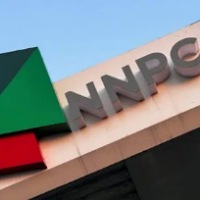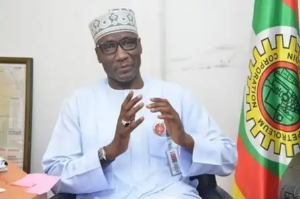Gas
Domestic gas consumption to increase from 1.7bn to 5.4bn – NNPC
ABUJA – The Nigerian National Petroleum Corporation (NNPC) said it had put structures in place to grow the domestic gas consumption from 1.71 billion cubic feet to 5.4 billion per day by 2019.
The Group Managing Director of NNPC, Mr Andrew Yakubu, disclosed this on Tuesday at the 2014 Nigeria Oil and Gas Conference and Exhibition in Abuja.
According to him, the prevailing gas infrastructure component of the Gas Master plan is designed to increase domestic gas consumption three fold to 5.4 bcf per day by 2019.
He said that the country’s reserves stood at 36 billion barrels of oil and about 182 trillion cubic feet (tcf) of gas and produced an average of 2.2 million barrels of oil per day in 2013.
“In Africa, only Libya has more oil reserves than Nigeria and despite new discoveries in Sub Saharan Africa, especially in Mozambique, Nigeria still has undiscovered gas potential of about 600 tcf,” he said
Yakubu said that the discovery of the Ogo field in 2013 with reserves of about 750 million barrels showed that the Nigerian Delta remained one of the most prospective areas in the world.
He said that the availability of production allowances would also provide a welcome boost for small fields and profitability would increase in the proposed Petroleum Industry Bill (PIB) currently before the National Assembly.
“Nigeria’s quest to grow its reserves is promoted in the PIB,” he said.
This, he said, was done through a robust acreage management system to be superintended by the Upstream Petroleum Inspectorate involving the release of acreage that had been held without activity.
Yakubu said that in the new exploration paradigm shift, reserves and production decline from existing fields were driving the leading oil and gas companies to formulate new strategies and partnerships.
He said that the likes of Afren had recently discovered large quantities of resources in the West Offshore Lagos (Ogo Fields).
Yakubu said that global rationalisation of asset portfolio by International Oil Companies (IOCs) had led to divestment of some Nigerian onshore blocks.
He said that this had in turn created opportunities for new companies to partner indigenous companies.
“For example, the Shell divested blocks, which were initially being funded from joint venture cash call is now being funded by new investors.
“This has freed the government from the burden of annual cash call funding.
“In the case of Nigerian Petroleum Development Company, NPDC, the onus is now on the company to arrange funding for the acquired equity,” he said.
Yakubu said that all the strategies to keep Nigeria as a leading producer of oil were hinged on the passage of the PIB to remove the uncertainty surrounding the future fiscal framework in the oil and gas sector.
“The passage of the PIB will promote transparency, accountability and good governance and level playing field for players in the Nigerian oil industry.
“This will doubtless attract the much needed investment in the Nigerian Petroleum Sector,” Yakubu said.
Yakubu said that in spite of the above strategies to remain a leading player, Nigeria had faced unprecedented challenges with regards to losses in production.
This, he said, was occasioned by incessant vandalism of crude oil export pipelines and domestic crude oil and petroleum product pipelines.
Yakubu said that a number of initiatives had been taken to tackle these challenges and ensure that the country maintained its leading position in oil production in Africa.
– BUSINESS DAY
Gas
Platform Petroleum targets a billion-dollar investment

Announces ambitious expansion plans
Platform Petroleum says the company is targeting a billion-dollar investment as it announces an ambitious strategic plan to bring 3 marginal fields into production by 2025, with a target of 10,000 barrels of oil and at least 50 billion standard cubic feet of gas per day.
Speaking on the sidelines of the 2024 Offshore Technology Conference (OTC) in Houston, USA, Chief Dumo Lulu-Briggs, Chairman of Platform Petroleum said that the company has scheduled a roadshow in London this June 2024 to raise extra funding to finance their ambitious expansion plans.
“The upcoming roadshow aims to attract equity partners and prepare for future opportunities, targeting a billion-dollar investment. We are seeking partners ready to invest in Nigeria’s oil and gas potential.
Our goal is to showcase the country’s vast opportunities and its potential to international investors” Lulu-Briggs said.
Platform Petroleum’s roadshow in London will highlight the company’s efficient production, upgraded flow stations, increased capacity, and achievements in nearly zero emissions.
With about one percent gas flare currently, Platform aims for zero gas flares by the last quarter.
“Nigeria is a vast market, and Platform Petroleum is thinking big. With the government’s ambitious plans, such as the Lagos-Calabar coastal line, Platform is poised for growth; pushing itself to the next level, building on a strong foundation and following Seplat’s successful precedent”, Lulu-Briggs said.
Despite being a small company, he emphasized that Platform Petroleum has demonstrated significant success and efficiency, showcasing that smaller oil and gas entities can indeed achieve remarkable feats adding that he believes that the company deserves recognition and more assets.
“Platform Petroleum is ambitious, aspiring to become a tier-1 company akin to international oil companies (IOCs) or a tier-2 company like Seplat. Interestingly, Seplat originated from Maurel & Prom, Shebah Petroleum, and Platform Petroleum, and today stands as a major player in the industry.
This history underlines Platform’s potential for substantial growth”, Lulu-Briggs said.
Furthermore, the Platform Petroleum Chairman said that the Offshore Technology Conference (OTC) is a crucial event for promoting Nigeria’s significant market potential.
“Partnering with the Petroleum Technology Association of Nigeria (PETAN) at OTC is key to attracting investment. The current proactive government understands the necessity for economic growth, and Platform is prepared to leverage every opportunity in the oil and gas industry to contribute to this expansion”, he concluded.
Breaking News
NNPC JV Unveils New Crude Oil Grade ‘Nembe’, Commences Exports With 1,900 Barrels

Precious ADELOLA
The NNPC/Aiteo Joint venture has announced the introduction of Nembe Crude Oil Grade, a new crude oil grade into the international crude oil market.
The announcement of the Nembe Crude Oil Blend, produced by Aiteo, the Operator of the NNPC/Aiteo Oil Mining Lease (OML) 29 Joint Venture (JV), was made at the ongoing Argus European Crude Conference in London, on Tuesday.
OML 29, an asset located onshore Nigeria, is operated by Aiteo Eastern Exploration & Production Ltd, Africa’s leading indigenous hydrocarbon producer, following a historic acquisition from Shell in 2014.
The Nembe Crude was previously blended with the popular Bonny Light grade and exported via the Bonny Oil & Gas Terminal.
The unique selling point of the Nembe Crude Oil grade with an API gravity was highlighted by both the Aiteo E & P and NNPC Limited Leadership at the Argus Conference in London.
The Nembe Crude Oil grade also has a low sulphur content and low carbon footprint due to flare gas elimination, fitting perfectly into the required spec of major buyers in Europe.
Two cargoes of 950,000 barrels each of the Nembe Crude Oil grade have since been exported to France and the Netherlands. With its attractive Assay of API 29 and low sulphur content, the Nembe Crude Oil grade commands a premium to the global Brent benchmark.
With the NNPC-Aiteo OML 29 JV back on-stream, Nigeria now boasts of an additional crude oil export of 2 Cargoes at 950,000 barrels each per month and 1.2 Bcf of export gas monthly.
This remarkable achievement signals the commencement of activities at Nigeria’s newest crude oil terminal, the Nembe Crude Oil Export Terminal (NCOET), which was licensed in line with the extant laws and Crude Oil Terminal establishment regulations.
The terminal was conceived as a Floating Storage and Offloading Vessel (FSO) with a storage capacity of two (2) Million Barrels and the ability to offload crude oil to any export tanker from AFRAMAX to Very Large Crude Carriers (VLCC).
It has a loading capacity of 25,000 barrels per hour and will be exporting over 3.6 million barrels of Crude oil monthly at full scale of operation.
Currently, hydrocarbon production from OML 29, which was hitherto constrained due to evacuation challenges owing to the security issues around the Nembe Creek Trunk Line (NCTL) corridor, has now been resolved through a collaborative and creative approach that led to the innovation of the Alternative Crude Oil Evacuation Solution.
The Argus European Crude Conference 2023 in London is a gathering of energy majors, refiners, NOCs, traders, financial institutions, and other representatives from across the global oil markets. The event also provides a critical opportunity for business leaders to connect, discuss, share and learn from one another.
Business
NNPCL, NCDMB, Oil Majors Agree Improved Efficiencies

Modupe Asudo
Major players in the oil and gas sector in Nigeria led by the Nigerian National Petroleum Company Limited (NNPCL) have covenanted to optimise operations by reducing contracting cycle to not more than 180 days.
A statement issued by the company disclosed that the Memorandum of Understanding (MoU) to this effect was endorced on Monday in Abuja at the company’s head office.
Other parties to the the contract include, the Nigerian Content Development and Monitoring Board, (NCDMB) and international oil companies.
Biztellers reports that an optimised contracting cycle was expected to improve the ease of doing business, reduce cost and drive efficiency, which would eventually translate to production growth, increased revenues, and ultimately improved profitability.
In addition, the MoU was expected to contribute significantly to the double-digit economic growth rate agenda of the Federal Government and generate value for all stakeholders, including investors, companies, host communities and Nigeria.
Notable elements in the framework of the MoU, going by the statement, included a reduction of the contracting cycle for open competitive tender, selective tender, and single sourcing tender to 180, 178, and 128 working days respectively.
This was in contrast with the current best effort performance of 327, 333, and 185 working days respectively.
According to Group Chief Executive Officer, NNPCL, Mele Kyari, signing the agreement portends exciting times for Nigeria’s oil and gas industry, in addition to standing as a bold testimony that the company was plunging into the future of hope, productivity and success.
Kyari, represented at the occasion by Executive Vice President, Upstream, NNPCL, Oritsemeyiwa Eyesan, pointed out that with oil and gas as the bedrock of Nigeria’s economy, there was need to get the contracting process in the Industry right so as to get the economy back on track.
In his remarks, Executive Secretary, NCDMB, Simbi Wabote, described the MoU as a way forward and a critical step towards enhancing the nation’s crude oil production.














